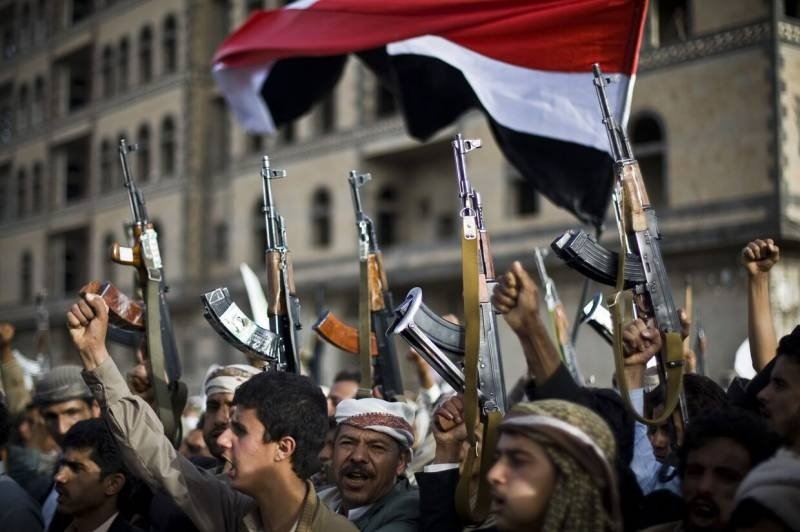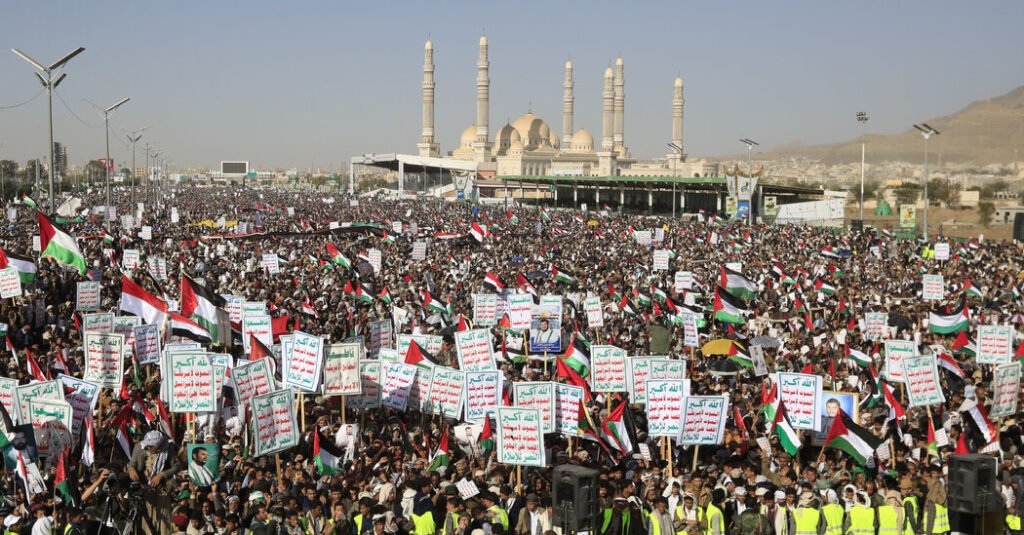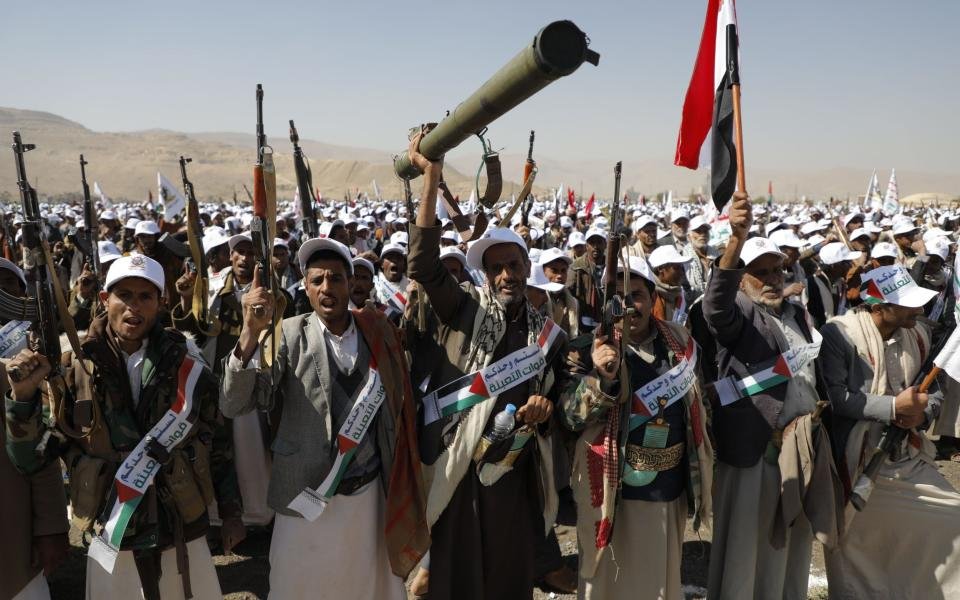Ansar Allah’s Rising Influence and its Role in the Conflict with Israel
In late November 2023, a significant event took place that underscores the escalating tensions in the Middle East and the evolving role of Yemen’s Ansar Allah movement (commonly known as the Houthis). On November 19, Houthi forces seized a cargo ship in the Red Sea, owned partially by an Israeli businessman, marking the latest in a series of actions aimed at disrupting maritime activities linked to Israeli interests. This incident followed a declaration by a senior military leader of the movement, who warned that vessels with Israeli connections would be targeted, urging nations to remove their crews from such ships.
The Houthis, using helicopters and fast boats, captured the Galaxy Leader and brought it to an undisclosed location near the Red Sea port of Hodeida. This event left international shipping companies scrambling to resolve the standoff while highlighting the complex and fragile nature of global maritime logistics. Since the Israeli military operation against Gaza began in October 2023, the Houthis have been vocal supporters of the Palestinian cause, launching missiles and drones aimed at Israel. Although these military actions have had limited direct impact due to intercepts by the U.S. Navy and Israeli defenses, the political and symbolic significance has been far-reaching, particularly in the Arab world.
Yemen’s Response as a Litmus Test for the Arab World
Yemen’s reaction to the Gaza conflict reflects a long-standing tradition in the Arab and Muslim world, where a nation’s stance on Palestine serves as a litmus test of its political orientation—whether progressive or reactionary. In Yemen, as in much of the region, support for the Palestinian cause resonates deeply with the population. The ongoing demonstrations in Houthi-controlled areas, where the regime actively encourages such mobilizations, are among the largest, with thousands marching in solidarity with Palestine. These protests represent genuine grassroots support, driven by a shared sense of outrage at Israeli actions and the perceived double standards of powerful global actors.

Elsewhere in Yemen, demonstrations have been less organized but no less passionate. In Aden, the southern port city under the control of the UAE-backed Southern Transitional Council (STC), public expressions of solidarity have been conspicuously absent. The STC’s leadership, deeply tied to the UAE, has remained silent, reflecting their concerns about alienating their Emirati backers, who have other priorities in the region.
Yemen’s Historical Connection to Palestine
Yemen’s involvement in the Palestinian issue is not a recent phenomenon. Even during the era of British colonial rule in Aden, the Yemeni people expressed their solidarity with the Palestinians. As early as 1947, Aden witnessed one of its first major strikes—against British pro-Zionist policies in Palestine. This strong alignment with Palestine continued into Yemen’s post-colonial history. Following Yemen’s unification in 1990, successive governments, both in the north and the south, maintained strong support for the Palestinian cause, whether through diplomatic channels or by hosting Palestinian leaders like Yasser Arafat.
During the years of the People’s Democratic Republic of Yemen (PDRY), the leftist state gave particular support to Palestinian movements, especially the left-wing factions, including George Habash’s Popular Front for the Liberation of Palestine (PFLP) and Nayef Hawatmeh’s Democratic Front for the Liberation of Palestine (DFLP). The PDRY not only provided diplomatic backing but also practical support, allowing Palestinian militants to use its territory for operations against Israeli targets.
Ansar Allah and Its Anti-Imperialist Agenda
In the ongoing Yemeni civil war, the Houthi movement’s alignment with the Palestinian cause is one of its key foreign policy positions.

Ansar Allah has adopted a radical anti-Israeli and anti-U.S. rhetoric, encapsulated in its widely recognized slogan: “Death to Israel, Curse on the Jews, Death to America.” The Houthis’ ideological framework emphasizes the right of descendants of the Prophet to rule, and their anti-Israel stance has been central to garnering support from broader sections of the Arab and Muslim world.
The war in Gaza has presented the Houthis with an opportunity to bolster their popularity, not only within Yemen but across the Middle East. Their actions, such as the interception of the Galaxy Leader, while militarily limited, have had significant political ramifications. These actions force shipping companies to divert vessels away from the Red Sea, increasing costs and sending a clear message of resistance to both Israel and its Western allies. The Houthis’ aggressive stance has drawn international attention, further complicating U.S. efforts to de-escalate the conflict in Yemen.
The Houthis’ Symbolic Role in the Wider Struggle
Despite being viewed by many as a non-state actor, the Houthis control vast territories and command significant influence over Yemen’s population. Their ongoing support for Palestine, in contrast to the relatively muted responses from the Saudi-backed factions, has solidified their image as one of the few forces in the region actively opposing Israeli policies. The symbolic importance of this stance cannot be underestimated, particularly as the Houthis have called for the creation of training camps for volunteers to fight in Palestine, and demanded the right of passage for their forces to join the conflict—something unlikely to be granted by Saudi Arabia.
While the Houthis’ missile attacks have had limited military impact, their role as one of the few groups in the Arab world taking direct action against Israel has made them a significant player in the broader anti-imperialist struggle. This position has embarrassed the Biden administration, which seeks to end the war in Yemen while simultaneously offering unflinching support to Israel.

The Future of Yemen’s Role in the Region
As the year 2023 comes to an end, Yemen’s role in the Palestinian struggle remains a key factor in regional politics. The Houthis, through their military actions and rhetorical support for Palestine, have positioned themselves as a leading force in the resistance against Israeli policies in the Middle East. This has not only enhanced their domestic standing but also drawn international attention, particularly in Arab and Muslim-majority countries where the Palestinian cause remains a potent rallying cry.
Moving forward, the Houthis are likely to continue leveraging their anti-Israel stance to boost their legitimacy at home and abroad. However, the broader implications of their actions—especially in the context of U.S. and Saudi efforts to resolve the Yemeni conflict—remain uncertain. What is clear is that Yemen’s future, much like its past, will continue to be deeply intertwined with the broader geopolitical struggles of the region.

